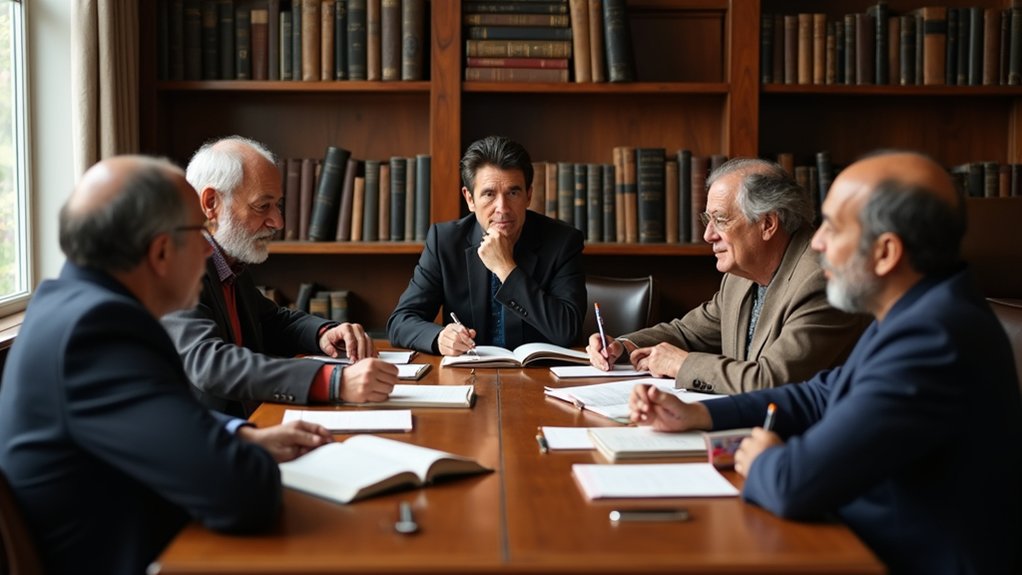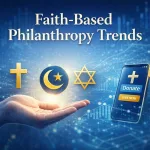
Faith and mental health: what research actually says (and what it doesn’t)
Many wonder how faith molds our minds and emotions, revealing surprising psychological effects that influence resilience and well-being in unexpected ways.
Contemporary philosophers are increasingly rethinking faith-based epistemology, exploring how religious belief interacts with rational inquiry, scientific evidence, and lived experience. Instead of treating faith and reason as opposing forces, modern scholars investigate how they overlap, challenge each other, and sometimes work together. These conversations raise important questions: Can faith be a genuine source of knowledge? What kind of justification can belief have without empirical data? How do moral intuition, personal experience, and spiritual insight shape what we consider “true”?

By examining these issues, faith-based epistemology offers a nuanced perspective on how humans search for meaning, truth, and moral clarity. It shows that religious belief, spirituality, and rational thought are not isolated domains, they are interconnected ways of understanding the world. As philosophers revisit long-standing assumptions about cognition and belief, they invite deeper reflection on what it means to “know” something in a complex and uncertain world.
Faith occupies a complex and contested place in modern epistemology. In religion and spirituality, faith is often seen as a path to understanding truths that cannot be accessed through empirical observation alone. Rather than relying solely on measurable data, faith draws on trust, intuition, tradition, and community experience.
In contemporary discussions, faith challenges traditional epistemic categories by:
Because of this, faith is both influential and debated. Some thinkers argue that faith offers legitimate insight into moral and existential questions. Others claim that beliefs without evidence undermine epistemic reliability. These tensions, however, are exactly what make faith-based epistemology so important today, it forces both believers and skeptics to clarify what it means to justify a belief.
One of the central questions in faith-based epistemology is whether belief without empirical evidence can still be rational. While scientific reasoning relies on data and experimentation, religious traditions often justify beliefs through other forms of understanding.
Philosophers point to several non-empirical justifications used in religion and spirituality:
A belief can be rational if it fits logically within a larger, internally consistent worldview. If spiritual beliefs create a coherent system that explains moral experience, human purpose, or the nature of existence, coherence itself may serve as justification.
People often believe because certain ideas provide purpose, direction, or emotional grounding. From a philosophical viewpoint, significance and meaning can function as legitimate reasons to hold a belief.
Many traditions rely on a moral or ethical “sense” that guides what feels true or right. While not empirical, moral intuition is considered a form of internal evidence grounded in human experience.
Beliefs that consistently generate positive transformation, greater compassion, inner peace, altruism, may be seen as rational due to their practical wisdom.
In this way, faith-based epistemology expands the definition of rationality, arguing that not all knowledge comes from scientific observation. Some forms emerge from the inner life, moral reasoning, and communal insight.
The relationship between faith and scientific reasoning has long been framed as a conflict, but modern discussions highlight a more nuanced connection. Rather than operating in direct competition, faith and scientific reasoning often function in complementary ways.
When understood as addressing different types of questions, the two perspectives can enrich each other rather than clash.
Many contemporary philosophers emphasize the importance of dialogue between scientific and spiritual worldviews. This dialogue can lead to:
For many people, scientific explanation and spiritual understanding coexist without contradiction, offering a richer way to interpret human experience.
A key component of faith-based epistemology involves epistemic virtues, qualities like humility, courage, honesty, and open-mindedness. These virtues shape how individuals hold their beliefs and how trustworthy those beliefs become.
Recognizing the limits of one’s knowledge encourages responsible belief formation. It allows people to admit uncertainty, consider criticism, and revise mistaken assumptions.
These virtues motivate individuals to confront challenging questions rather than avoid them, strengthening the authenticity of their faith.
When believers engage skeptics with integrity and openness, faith becomes not a defensive wall but a thoughtful, reflective commitment.
By practicing epistemic virtues, individuals promote a version of faith that is sincere, self-aware, and intellectually responsible. This makes faith more credible within philosophical discussions.
Not all philosophers accept faith-based epistemology. Critics argue that without evidence, belief becomes unreliable. They point to:
These critiques push the conversation forward, forcing faith-based models to refine their definitions of justification and provide stronger accounts of how spiritual belief connects to truth.
For countless individuals, faith provides the foundation for understanding morality. Moral epistemology grounded in faith can offer:
While debates continue over whether morality requires faith, many argue that spiritual frameworks offer a depth of ethical meaning not easily captured by secular reasoning alone.
Personal experience plays a powerful role in shaping what people believe. Through life events, relationships, moments of crisis, and spiritual encounters, individuals often refine or transform their understanding of truth.
Experience allows people to:
This experiential dimension makes faith dynamic rather than static, allowing beliefs to grow and adapt over time.
Contemporary discussions on faith-based epistemology reveal that faith and reason are not enemies, they are intertwined tools for understanding the world. Faith offers meaning, moral insight, and spiritual grounding, while reason encourages clarity, consistency, and responsible belief. When combined, they create a richer, more holistic approach to knowledge.
Although critics challenge the reliability of faith without evidence, philosophers continue to explore how spiritual insight, personal experience, and ethical intuition contribute to human understanding. Intellectual virtues such as humility and honesty strengthen the credibility of faith-based claims, while dialogue between science and spirituality broadens our perspective on truth.
In this way, faith-based epistemology remains a vital part of contemporary thought, shaping how individuals interpret their beliefs, their values, and their search for meaning.

Many wonder how faith molds our minds and emotions, revealing surprising psychological effects that influence resilience and well-being in unexpected ways.

Faith-based philanthropy trends reveal a reality that is often misunderstood: charitable giving rooted in faith has never been static. From the earliest forms of communal offerings in ancient civilizations to structured religious obligations such as tithing, zakat, and tzedakah, faith-based generosity has continuously evolved alongside social, economic, and technological transformations. Introduction: Faith at the Crossroads […]

A deep exploration of how faith shapes moral choices reveals complexities that challenge simple answers and invite thoughtful reflection.

Understanding faith across religions reveals shared truths and unique beliefs—unlocking mysteries that connect humanity in unexpected ways. Discover more inside.

Strengthening bonds and shaping values, faith plays a crucial role in communities—discover how it influences unity and resilience in unexpected ways.

Struggling between conviction and uncertainty, faith and doubt intertwine in ways that challenge beliefs and reveal unexpected spiritual depths. Discover the paradox within.